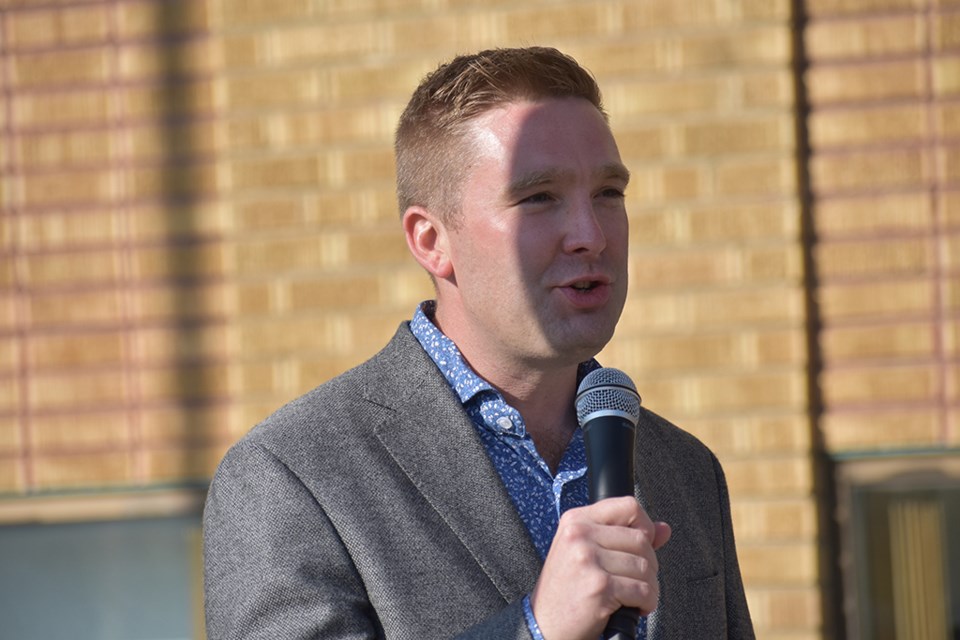THE BATTLEFORDS — Just over a week after nearly 100 residents of the Battlefords took to the streets to voice their displeasure with the Government of Saskatchewan's new parental inclusion policy, Minister of Education Jeremy Cockrill, has doubled down on his support for the change.
When asked by the News-Optimist/SASKTODAY.ca to comment on what we would tell protesters upset at the change, Cockrill said, “I think that's a part of our democratic system. You know, there's lots of ways to express your opinion, I mean obviously, you get a chance to vote every four years ... but between elections, you have an opportunity to talk directly to your elected officials, whether that be through a meeting, or email or phone call. And you know, protest is one of those ways as well.”
Cockrill noted that he's never seen a government policy where 100 per cent of people agree and that his job as MLA is to speak to people on both sides of the aisle. He added that when it comes to respectful conversations, he's available.
“The protest wasn't surprising that it happened, and probably won't be the last time there's people in front of my office. It's just a part of our democratic system ... in other countries, people go to jail for doing that, and in Canada, they don't.”
Despite the large public display of disapproval seen not only in North Battleford but across the province, Cockrill maintains that there is still overwhelming support for the policy.
“I know there's been some provincial media outlets that have questioned that, but I mean, I speak to actual constituents every single day, every single week, and I think there's a consensus that parents want to be more involved with their children's education,” he said.
“I think we've put some safeguards in the policy ... there are going to be some situations where maybe a child has a home that they don't feel safe communicating things about gender or sexuality, and there is a provision in this policy that the school division can work with that child, the school staff can work with that child to help them get to a place where they do feel comfortable."
Cockrill said that the government is looking forward to meeting the recently announced legal challenges head on.
“At the end of the day, the default position should be that the home is the safest place for the child. That isn't true for 100 per cent of people, but overwhelmingly when I talk to parents in the community, they say, 'My child is the most important thing to me and if they're going through something I want to be engaged.'”



